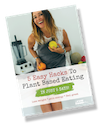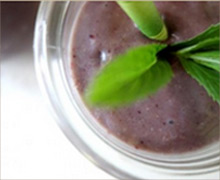Kasey, our guest blogger, is a naturopath and holistic living expert whose purpose in life is to help people achieve optimum health. For our Mother’s Day edition Kasey has been kind enough to share her top tips on how soon-to-be parents can give their little ones the best possible start in life.
1. Why it’s important you achieve optimal health before trying for a baby
The health of your baby’s whole life is affected by the health of the parents eggs and sperm. The sperm and egg health is determined by the health of BOTH the parents to be. There is therefore a responsibility for BOTH parents to get in shape, have a positive and relaxed mindset and eat a nourishing diet, to positively affect their genes and therefore health of their future child. Epigenetics plays a role: basically you can switch genes on and off by diet, lifestyle and mindset.
2. Tests both parents should do to achieve optimal health before trying to conceive
Depending on their exposure to toxins such as heavy metals and chemicals, in the home or work environment, a Hair Tissue Mineral Analysis may be very valuable to detect levels of toxic metals and the ratio of the good minerals. There are also urine tests which can detect levels of chemicals, such as parabens and phthalates which are built up in the body. This is when one should undertake a specific detoxification program targeted at removing whatever toxin has shown up. If not, toxicity like this can affect the health of the unborn child, as anything you are exposed to and store, the baby is also exposed to.
If a woman has irregular cycles, a saliva hormone test may be beneficial to determine underlying imbalances that may cause issues with conceiving or sustaining a pregnancy.
If any digestive issues are present in either parents-to-be, they should consider food intolerance testing or stool analysis testing, to rule out any inflammation caused by food reactions, infections or imbalanced gut flora. If parasites are represent, they will steal many nutrients away from the host, and therefore leaving less nutrients for the baby.
Blood tests are important to ensure levels of B12, Folate, Homocysteine, fasting glucose and insulin and Vitamin D are optimal. If not, supplementation is necessary.
There are also some important genetic tests that should be performed, to help guide parents-to-be what specific tests are appropriate and where personal supplementation or support is necessary.
3. The type of diet both parents should have to achieve optimal health before trying to conceive
A nourishing diet is crucial to support both parents, to promote a healthy environment to enhance conception chances. This includes:
- adequate good fats (avocado, coconut oil, wild caught fish, nuts and seeds and if you are not raw vegan – organic meats, organ meats and bone broths)
- plenty of green leafy vegetables
- quality protein at least twice per day (nuts, seeds or legumes – if you are not raw vegan: eggs, fish, meat).
- Fermented foods for good bacteria, such as coconut yoghurt, kefir and sauerkraut.
- Filtered or spring water
- Eliminate intolerant foods and those which put stress on the body (alcohol, sugar, gluten, processed foods).
4. Why stress reduction is so important
It is very important to relax in our high stress society. Stress can disrupt the intricate hormone balance in the body, affecting the crucial blood sugar balance, thyroid function and therefore can upset sex hormones. Once pregnant, any stress (physical, chemical or emotional) can upset the long term health of the baby.
5. The supplementation I recommend during pregnancy
Preconception for males, antioxidants are really important for sperm quality, such as vit A, vit c, coQ10, selenium. Otherwise I recommended to work with a Naturopath or Integrative Dr who can devise an individualised treatment according to tests I discussed previously.
Good quality vitamin D, omega 3’s, probiotics, iron, zinc, iodine and activated B vitamins are key supplements given in my practise for pregnant women, but levels are still determined by tests.
6. How to help promote breast milk production
- Getting in high quality, organic produce through her diet.
- Supplementing with at least Omega 3’s (high in DHA for baby’s brain development) and anything that is showing low through bloods.
- Resting! When your baby sleeps through the day, take this op to have a rest too.
- De-stress- Take time out for you to enjoy a relaxing epsom salt bath, deep breathing, meditation, yoga, massage. I’m taking my best friend who is breastfeeding for a massage next week as I see the importance of this. If your giving all day and night, you need some time for yourself to rejuvenate.
- If breastmilk production is low, a few teas that can help include milk thistle, alfala, nettles, red clover, raspberry leaf, fennel; the spice fenugreek and the fresh herb parsley.
If you’d like to read more of Kasey’s articles you can check out her website here.




